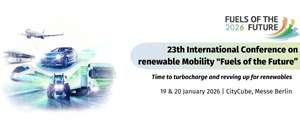DoE funds emissions to fuels
The funds were matched with $156 million in private cost-share.
Converting captured CO2 into products such as chemicals, carbonates, plastics, fuels, building materials, and other commodities is an important aspect of carbon capture and storage technology.
Converting CO2 into other useful forms can help reduce carbon emissions in areas where long-term storage of CO2 is not practical.
It is anticipated that large volumes of CO2 will be available as fossil fuel-based power plants and other CO2-emitting industries are equipped with CO2 emissions control technologies to comply with regulatory requirements.
The projects selected to demonstrate the beneficial use of CO2 include:
-Touchstone Research Laboratory: will pilot-test an open-pond algae production technology that can capture at least 60% of flue gas CO2 from an industrial coal-fired source to produce biofuel and other high value co-products.
A novel phase change material incorporated in Touchstone's technology will cover the algae pond surface to regulate daily temperature, reduce evaporation, and control the infiltration of invasive species.
Lipids extracted from harvested algae will be converted to a biofuel, and an anaerobic digestion process will be developed and tested for converting residual biomass into methane. The host site for the pilot project is Cedar Lane Farms in Wooster, Ohio. (DoE share: $6,239,542).
-Phycal will complete development of an integrated system designed to produce liquid biocrude fuel from microalgae cultivated with captured CO2. The algal biocrude can be blended with other fuels for power generation or processed into a variety of renewable drop-in replacement fuels such as jet fuel and biodiesel. Phycal will design, build, and operate a CO2-to-algae-to-biofuels facility at a nominal thirty acre site in Central O'ahu (near Wahiawa and Kapolei), Hawaii.
Hawaii Electric Company will qualify the biocrude for boiler use, and Tesoro will supply CO2 and evaluate fuel products. (DoE share: $24,243,509).










